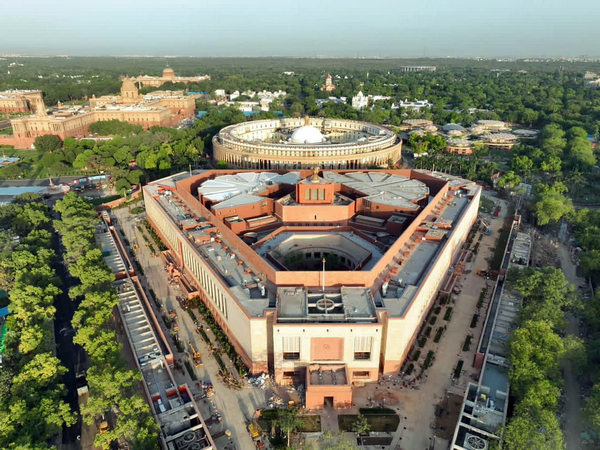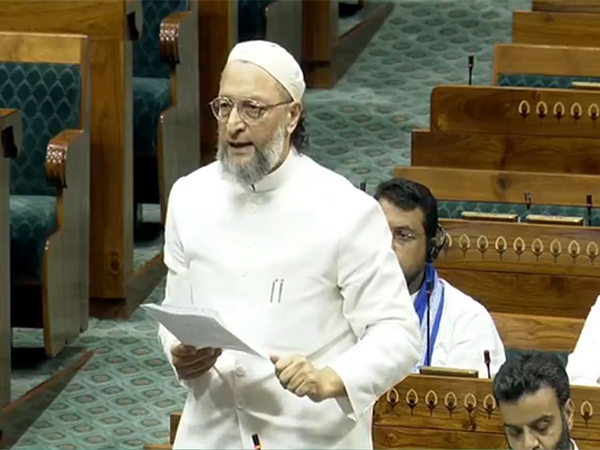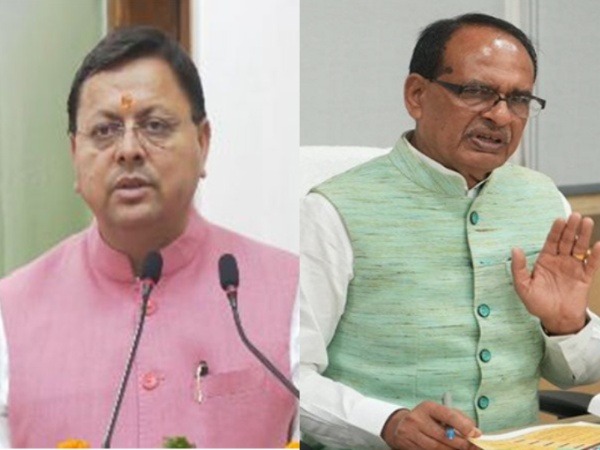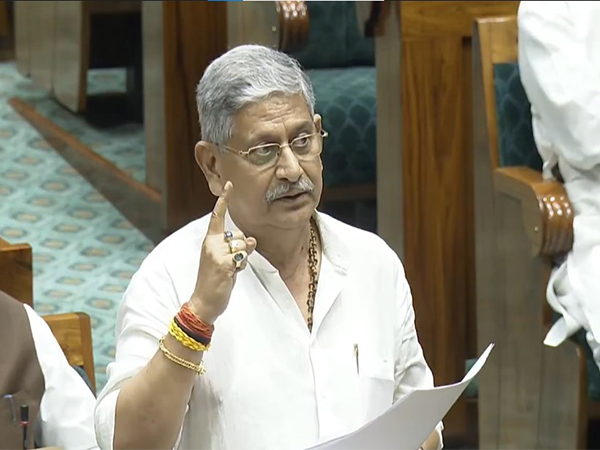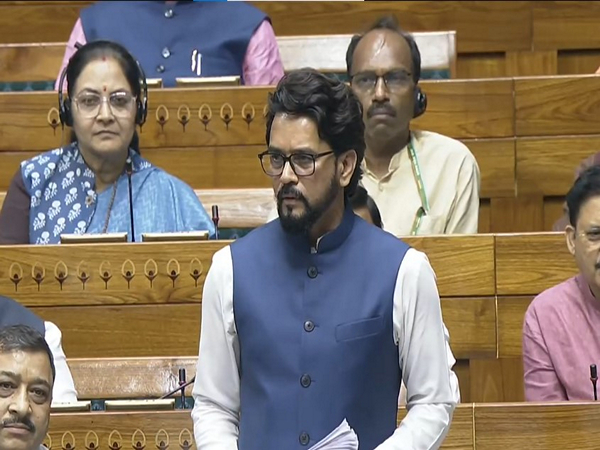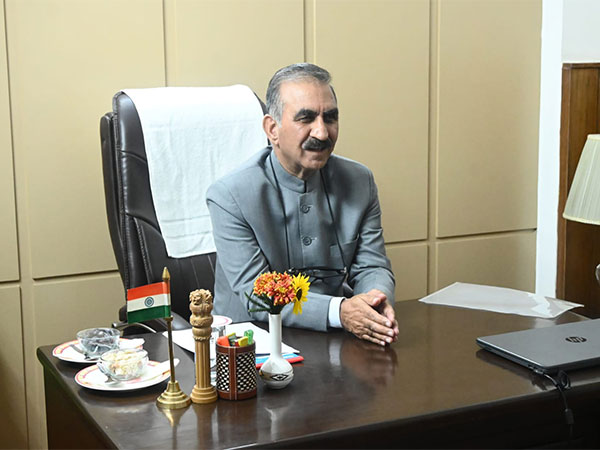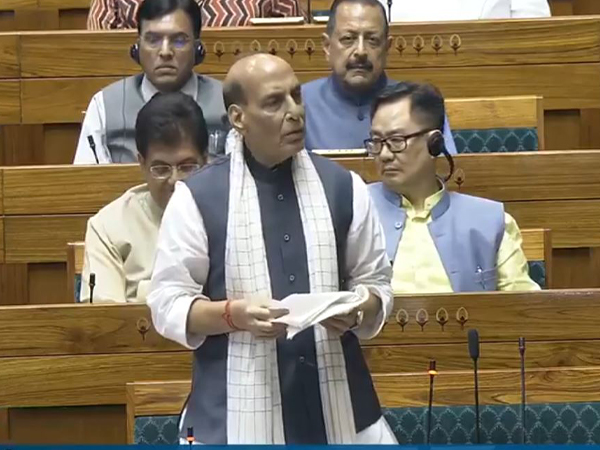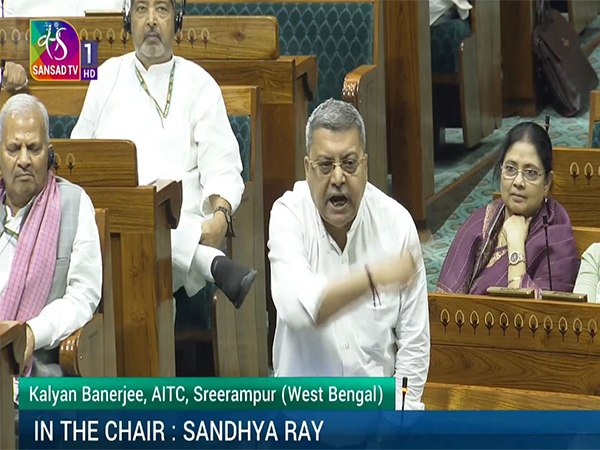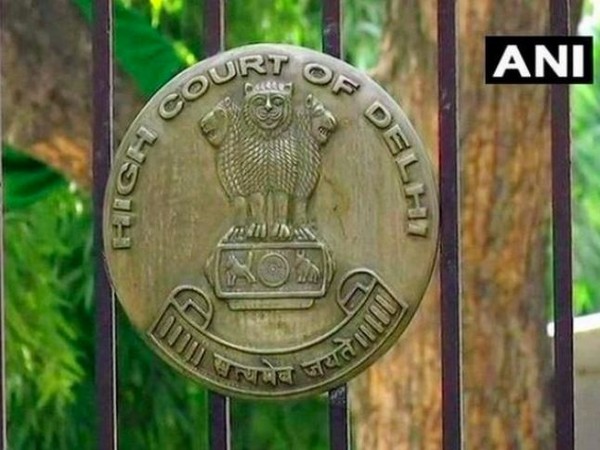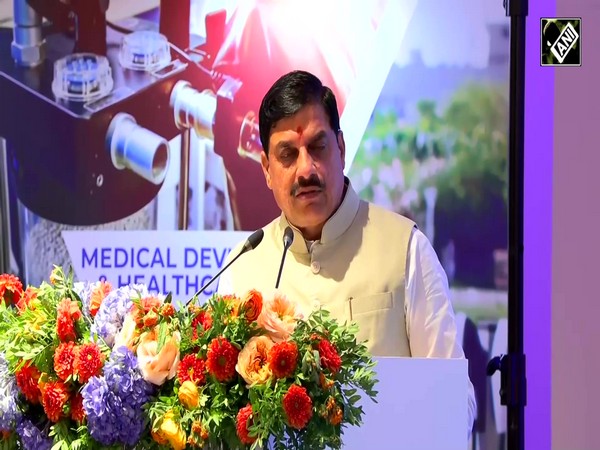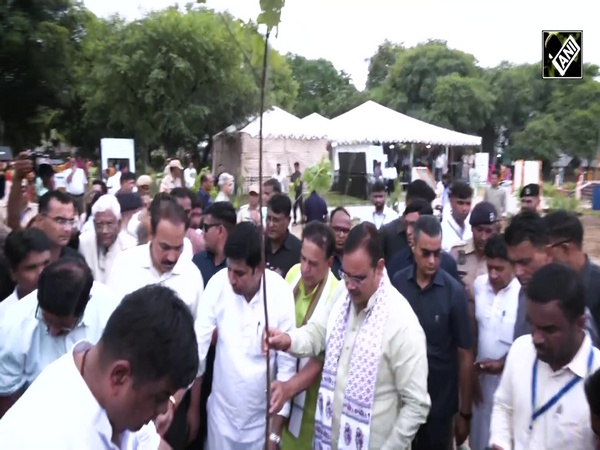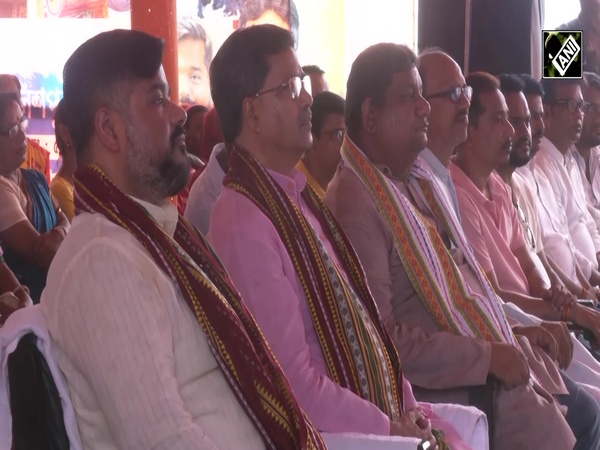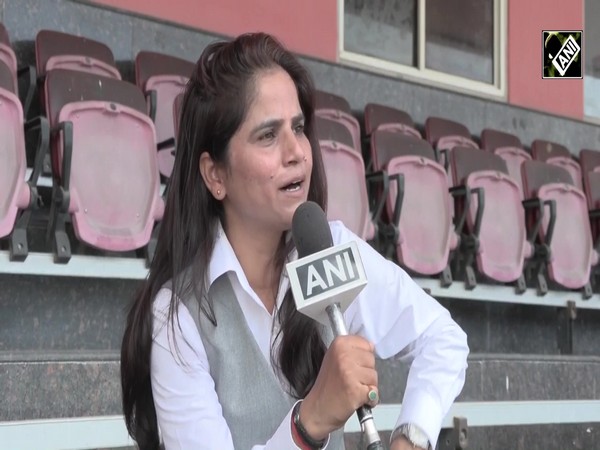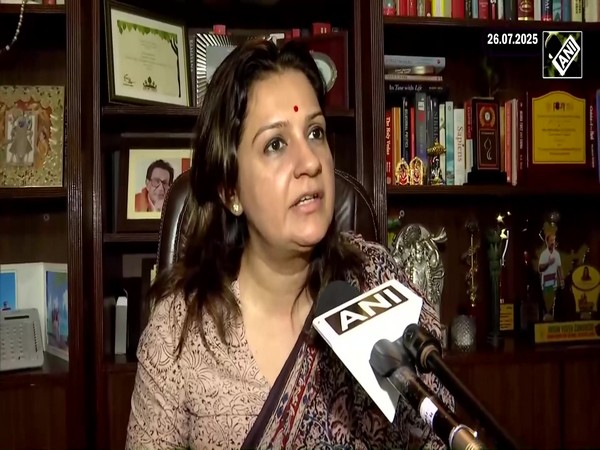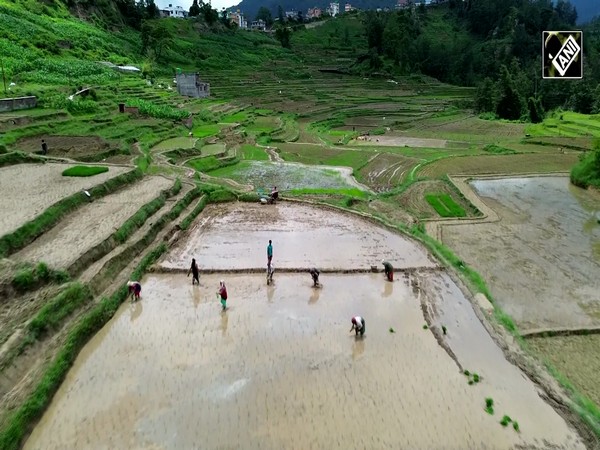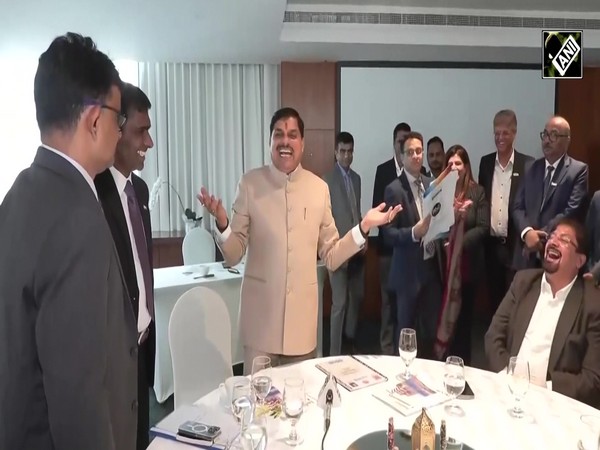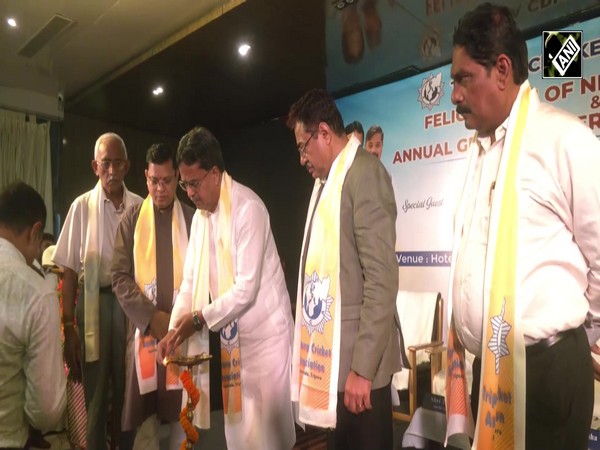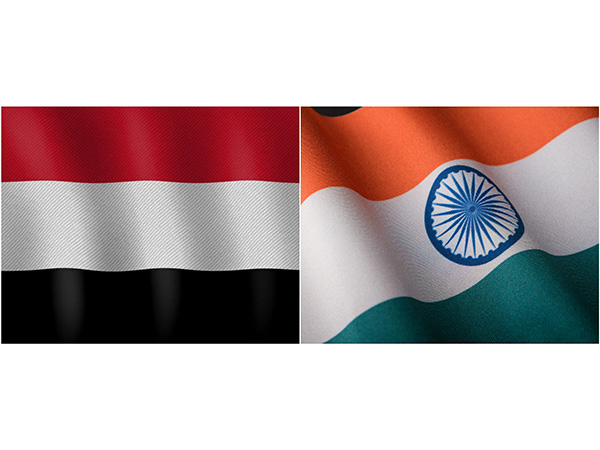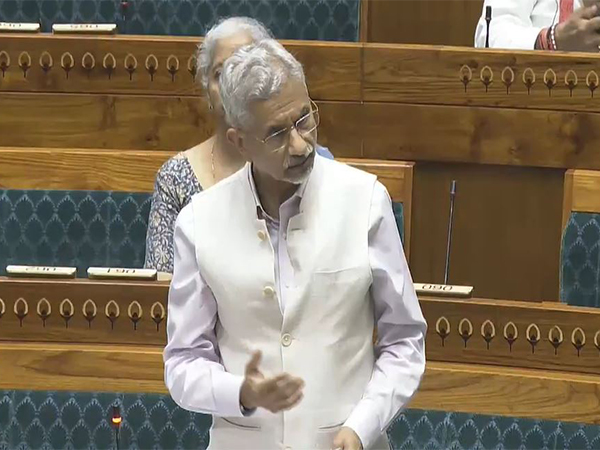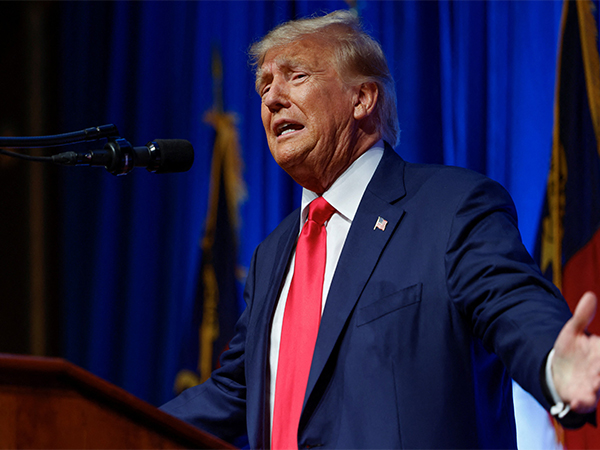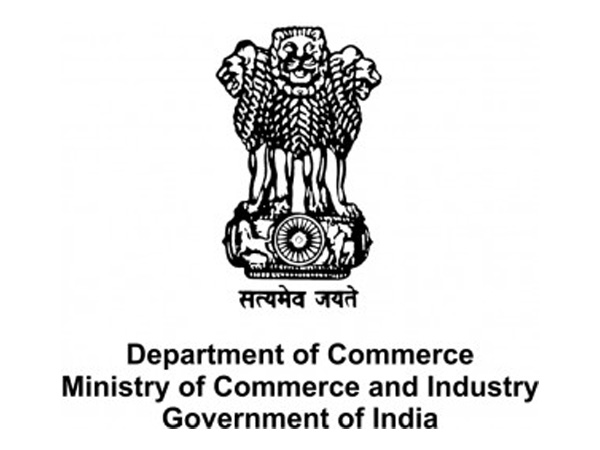
Commerce Ministry holds meeting with textiles, leather, footwear industry stakeholders on India-UK CETA
Jul 28, 2025
New Delhi [India], July 28 : The Department of Commerce, Ministry of Commerce and Industry on Monday held an industry interaction with stakeholders from the textiles, leather and footwear sector in New Delhi to discuss the opportunities created by India-UK Comprehensive Economic and Trade Agreement (CETA).
In a message to the meeting, Union Minister of Commerce and Industry Piyush Goyal, conveyed that the agreement is a transformative opportunity for India's textiles, leather, and footwear industries. He highlighted that the historic agreement opens a world of opportunities for these sectors, the Ministry of Commerce and Industry said.
Goyal noted that the landmark India-UK CETA has positioned India's textile sector for a significant surge in exports.
Secretary, Department of Commerce, Sunil Barthwal, emphasised that eliminating tariffs and empowering MSMEs would promote inclusive growth and generate employment. He added that the agreement is also expected to enhance global recognition for Indian artisans and manufacturers.
As part of the stakeholder engagement, industry and institutional invitees to the meeting included the Council for Leather Exports (CLE), Confederation of Indian Industry (CII), Confederation of Indian Footwear Industry (CIFI), Indian Footwear Components Manufacturers Association (IFCOMA), the Footwear Design and Development Institute (FDDI), Central Leather Research Institute (CLRI), Leather Sector Skill Council (LSSC), various Textile Export Promotion Councils, Industry Associations and textile exporters.
Key government departments, including the Ministry of Textiles, Bureau of Indian Standards (BIS), Directorate General of Foreign Trade (DGFT), Department of Revenue, Department for Promotion of Industry and Internal Trade (DPIIT), as well as senior officials from the Department of Commerce, also attended the meeting to deliberate on opportunities and sectoral preparedness arising from the agreement.
The agreement provides Indian textile and clothing products with duty free access to UK market and addresses the duty disadvantages (of upto 12%) that the Indian textiles sector faced in UK vis a vis some key competing countries like Bangladesh, Cambodia and Pakistan. The zero-duty market access will benefit segments such as Ready-Made Garments, Home Textiles, Carpets and Handicrafts and set the tone for a sharp surge in exports.
The agreement will help in increasing demand of Indian Textiles and benefit all major textile clusters such as Tirupur, Jaipur, Surat, Ludhiana, Panipat, Bhadohi, Moradabad. The CETA is expected to have a positive impact across the textiles value chain, benefiting various stakeholders and boosting employment generation in this labour intensive sector.
CETA eliminates UK's import duties for Indian products, which till now are ranging from 2% to 8% for leather goods, 4.5% for leather footwear, and 11.9% for non-leather footwear. This levels the playing field for Indian exporters against competitors such as Bangladesh, Cambodia, and Vietnam, who have enjoyed preferential access to the UK market.
The tariff elimination is expected to nearly double India's leather and footwear exports to the UK--from USD 494 million in 2024 to USD 1 billion within three years. Key manufacturing hubs across the country are set to benefit significantly, with a projected surge in demand expected to generate thousands of new jobs, particularly among MSMEs, artisans, women entrepreneurs, and youth-led enterprises.
The agreement also simplifies customs procedures, aligns technical standards, and ensures protection of Indian Geographical Indications (GI) such as Kolhapuri footwear and Mojari, allowing Indian products to gain enhanced visibility in the UK's USD 8.7 billion leather and footwear market.
By facilitating duty-free access and regulatory ease, the India-UK CETA enhances pricing power and global visibility for Indian manufacturers, especially in high-quality leather and fashion products that are in strong demand in the UK.
CETA also promotes sustainable production practices and encourages MSMEs to adopt digital tools, integrate with global value chains, and expand their e-commerce footprint.
Government initiatives like the Indian Footwear and Leather Development Programme (IFLDP), with an outlay of INR 1,700 crore, and the proposed Focus Product Scheme for the footwear and leather sector support capacity expansion, technology upgrades, creation of mega clusters and design studios, and international brand promotion.
The India-UK CETA is a catalyst and a game changer for transforming the leather and footwear industry into a global powerhouse, driving economic growth, sustainability, and inclusive development for India's MSMEs and artisans.
The representatives of various Export Promotion Councils and Industry associations welcomed the India-UK CETA and mentioned that the duty-free access will make Indian products more competitive and provide a level playing field to Indian Textile exporters. During the interactions, the need for follow up steps to be taken by the textiles industry to effectively utilize the benefits provided by the FTA was also emphasized.
More sector-based stakeholder consultations and workshops are slated to be held in the next few days to prepare the Industry to convert the potential opportunities created under CETA to actual gains. The Ministry will also reach out to the manufacturing clusters in states to prepare them for benefiting from the provisions of the landmark agreement.
